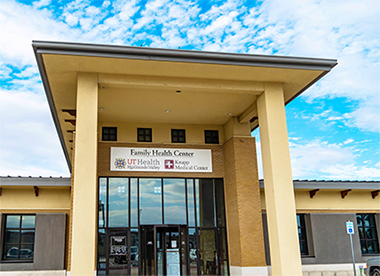Influenza (Flu)
What is the Flu?
Influenza (flu) is a contagious respiratory illness caused by influenza viruses. The flu can infect the nose, throat, and sometimes the lungs.
Symptoms of the flu can include a fever, cough, sore throat, runny or stuffy nose, headaches, and muscle aches. The flu can cause mild to severe illness. In the most severe cases, it can lead to death.
The best way to prevent the flu is by getting a flu vaccine each year.
Why should I get the flu shot?
Flu vaccination has many important benefits. It can reduce flu illness, doctor visits, and missed work and school due to the flu, as well as prevent flu-related hospitalizations and deaths.
Who should get the flu shot?
Everyone 6 months and older should get a flu vaccine every season with rare exceptions. Vaccination is particularly important for people who are at high risk of serious complications from influenza. For more information on who needs a flu vaccine, click here.
When should I get the flu shot?
Get vaccinated in early fall (September), before flu season starts, or by the end of October. It takes about two weeks after vaccination for antibodies that protect against the flu to develop in the body and provide protection against the flu.
Flu Shots at UT Health RGV Clinics

Symptoms
Flu signs and symptoms usually come on suddenly. People who are sick with flu often feel some or all these symptoms:
- Fever or feeling feverish
- Cough
- Chills
- Sore throat
- Runny or stuffy nose
- Muscle or body aches
- Headaches
- Fatigue or feeling tired
- Some may experience vomiting and diarrhea, though this is more common in children than adults

Prevention
The CDC recommends a yearly flu vaccine as the first and most important step in protecting against flu viruses.
-
Flu vaccines help reduce the burden of flu illnesses, hospitalizations, and deaths each year.
-
Each flu season, flu vaccines will be designed to protect against various flu viruses that research indicates will be the most common.
- Everyone 6 months and older should get an annual flu vaccine, ideally by the end of October.
- Vaccination of people at higher risk of developing serious flu complications is especially important to decrease their risk of severe flu illness.

Treatments
If you get sick with the flu, treatment options may be available for you, such as influenza antiviral drugs.
-
Antiviral drugs work best when started early, such as one to two days after your flu symptoms begin.
-
Influenza antiviral drugs can lessen symptoms and shorten the time you are sick by 1 or 2 days.
- Check with your doctor promptly if you are at higher risk of serious flu complications.
- If you get sick with flu symptoms, in most cases, you should stay home and avoid contact with other people except to get medical care.
More Facts About Flu Shots
- The flu shot can prevent you from getting the flu, make it less severe if you do get it, and keep you from spreading the flu.
- There is no live virus in flu shots. It cannot cause the flu. Each year, a new vaccine is made to keep up with the ever-changing viruses.
- The flu shot takes about two weeks for protection to develop after vaccination. It lasts throughout the flu season.
Flu Shot Locations Near You
Flu shots are available at our UT Health RGV locations listed below.
Locations & Directions

Edinburg, TX 78539

Edinburg, TX 78539

Edinburg, TX 78539

Harlingen, TX 78550

Harlingen, TX 78550





